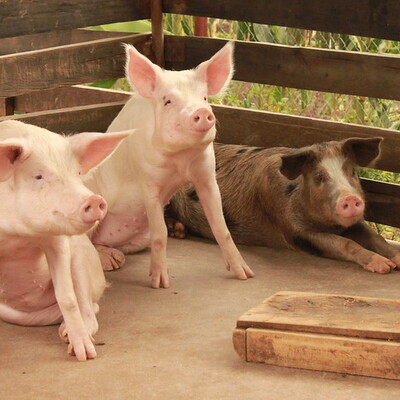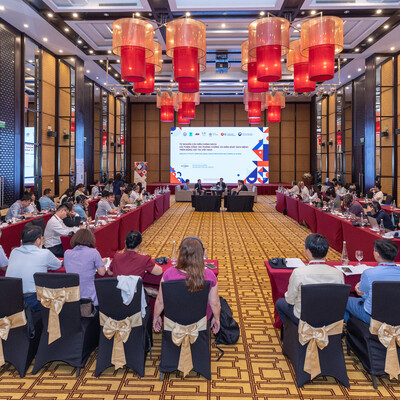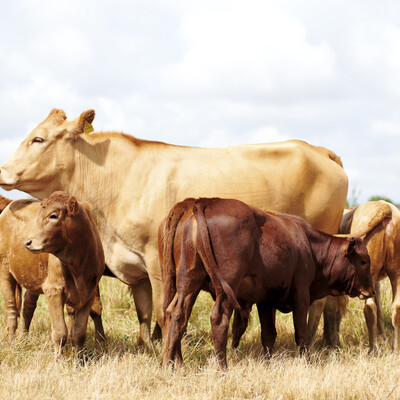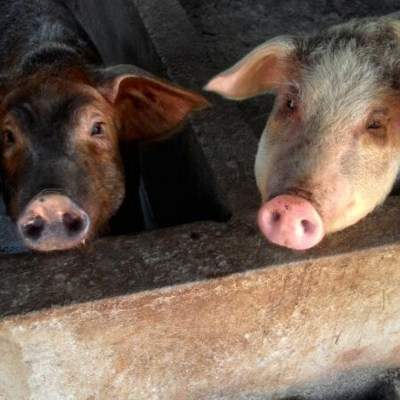
BMZ-funded project to share recommendations for enhancing pork safety and adoption of local pigs in rural Vietnam
In late 2020, animal and human health experts gathered in Hoa Binh Province, in northwest Vietnam, to discuss ways of disseminating the findings and recommendations of the now concluded two-year ‘Safer indigenous pork and healthier ethnic minorities in Vietnam through better management of parasitic pig-borne diseases’ project.
The project assessed the prevalence of two important parasitic pig zoonoses, trichinellosis and cysticercosis, in rural communities of Da Bac District, Hoa Binh Province, and suggested and implemented control options for veterinary services and communities.
Following the One Health approach of the project, more than 30 experts working in livestock production, animal health and public health representing national institutes, government at both central and provincial level, and journalists attended the project closing meeting on 26 November 2020.
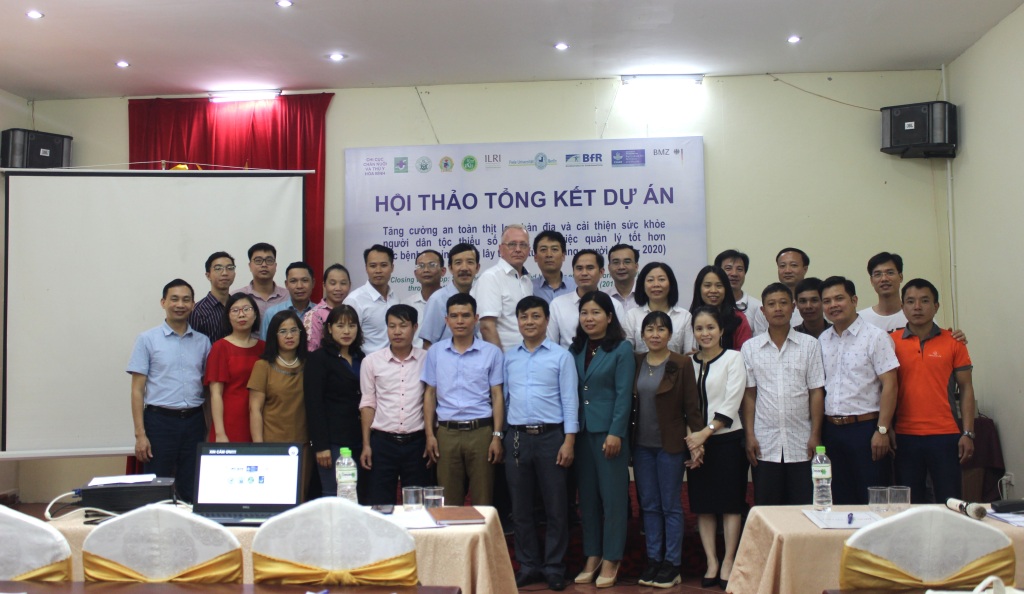 30 experts from livestock production, animal health and public health attend the BMZ-funded closing meeting in Hoa Binh Province (photo credit: ILRI/Chi Nguyen).
30 experts from livestock production, animal health and public health attend the BMZ-funded closing meeting in Hoa Binh Province (photo credit: ILRI/Chi Nguyen).
Luong Thanh Hai, director of Sub-department of Animal Health and Livestock Production of Hoa Binh, noted that a 2018 study by the International Livestock Research Institute (ILRI)-led project found that trichinellosis and cysticercosis only occur sporadically in Hoa Binh Province and the health risks posed by these diseases to human were relatively low.
These findings were from a survey of 352 pigs in 131 surveyed pig farms and 300 community people. Only six pigs tested positive for cysticercosis and only two out of 300 volunteers tested positive for cysticercosis and/or trichinellosis. However, the study revealed that certain risky practices, for example, the raising of pigs in free-range systems and the consumption of raw or undercooked pork still occurred and could spread these diseases. The project team recommended improved pork production and changes in pork consumption practices to further reduce the risk of cysticercosis and trichinellosis. Promoting these changes was the focus of the project’s interventions.
 While Ban pig is a main source of livelihood of ethnic people in Hoa Binh Province, they pose risks to human health if certain risky practices, for example, the raising of pigs in free-range systems and the consumption of raw or undercooked pork continue (photo credit: ILRI/Chi Nguyen).
While Ban pig is a main source of livelihood of ethnic people in Hoa Binh Province, they pose risks to human health if certain risky practices, for example, the raising of pigs in free-range systems and the consumption of raw or undercooked pork continue (photo credit: ILRI/Chi Nguyen).
The project raised awareness among farmers and local consumers on the nature and risks of food-borne zoonotic pathogens to better prevent and control diseases in pigs. The project team also used targeted behaviour change communication materials with messages that promoted hand washing with soap when handling and before eating pork and educated farmers and households members on how to cook pork properly before eating it to prevent the spread of parasites. Awareness was also raised on the importance of regular mass deworming for community members.
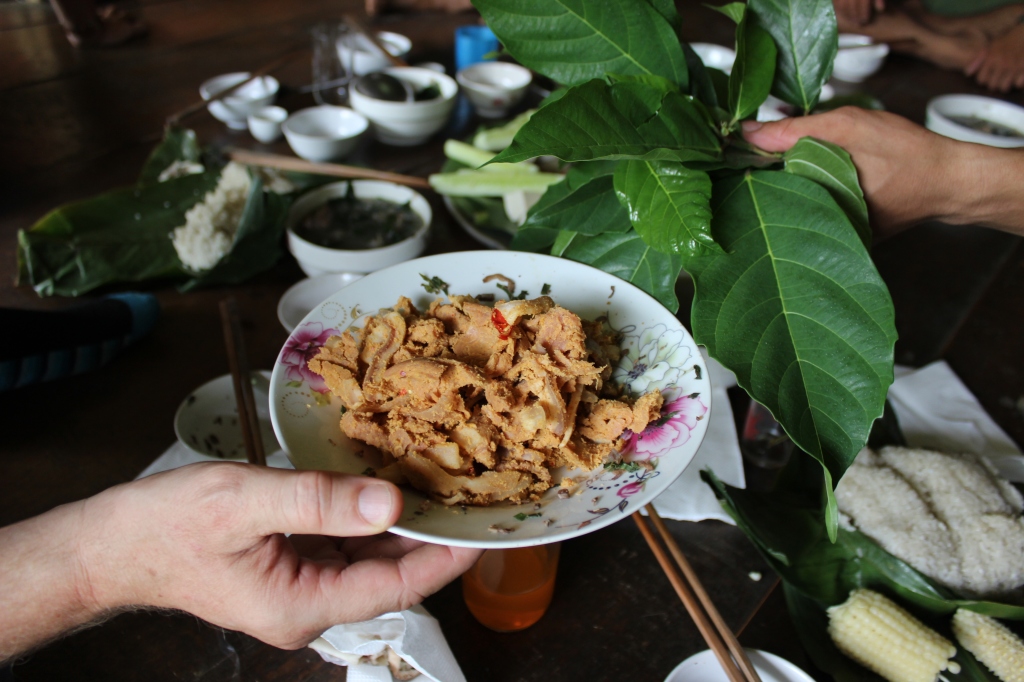 Nem (undercooked fermented pork) is a favourite food of local people in Hoa Binh Province and many other localities in Vietnam (photo credit: ILRI/Chi Nguyen).
Nem (undercooked fermented pork) is a favourite food of local people in Hoa Binh Province and many other localities in Vietnam (photo credit: ILRI/Chi Nguyen).
From October 2019 to November 2020, a multisectoral awareness campaign on the prevention of parasitic pork-borne diseases reached at least 25% (approximate 15,000 people) in Da Bac across all 21 communes. The campaign used radio broadcasts, training of trainers manuals, posters and flyers. The latter two are still being used to promote behaviour change in pig production and handling in high-risk areas by local partners. The project also trained 50 butchers and 18 lab technicians to improve diagnostic procedures for both diseases.
A major co-output of this project and the Australian Centre for International Agricultural Research (ACIAR)-funded ‘Market-based approach to improving the safety of pork in Vietnam’ or SafePORK project, was the registration of a Ban pig breed by the Hoa Binh authorities. As a result, local partners are now promoting the local Ban pigs and training butchers affiliated with the Ban Pig Cooperative in the province on good hygiene practices at slaughter, parasites detection as well as food safety practices for consumers and relevant stakeholders. The latter work has been incorporated in the on-going SafePORK project building up on the achievements of the now-ended project addressing parasitic pig-borne diseases for safer pork and healthier ethnic minorities in Vietnam.
The ‘Safer indigenous pork and healthier ethnic minorities in Vietnam through better management of parasitic pig-borne diseases’ project started in 2018 and ended in 2020. It was funded by the German Federal Ministry of Economic Cooperation and Development (BMZ) and coordinated by ILRI and a wide range of local partners including the Vietnam National Institute of Veterinary Research (NIVR), the Hanoi University of Public Health (HUPH), and international partners including the Free University of Berlin (FUB) and the Federal Institute for Risk Assessment (BfR). Additional expertise was provided by the National Institute of Malariology, Parasitology and Entomology (NIMPE) and the National Institute of Animal Science (NIAS).






